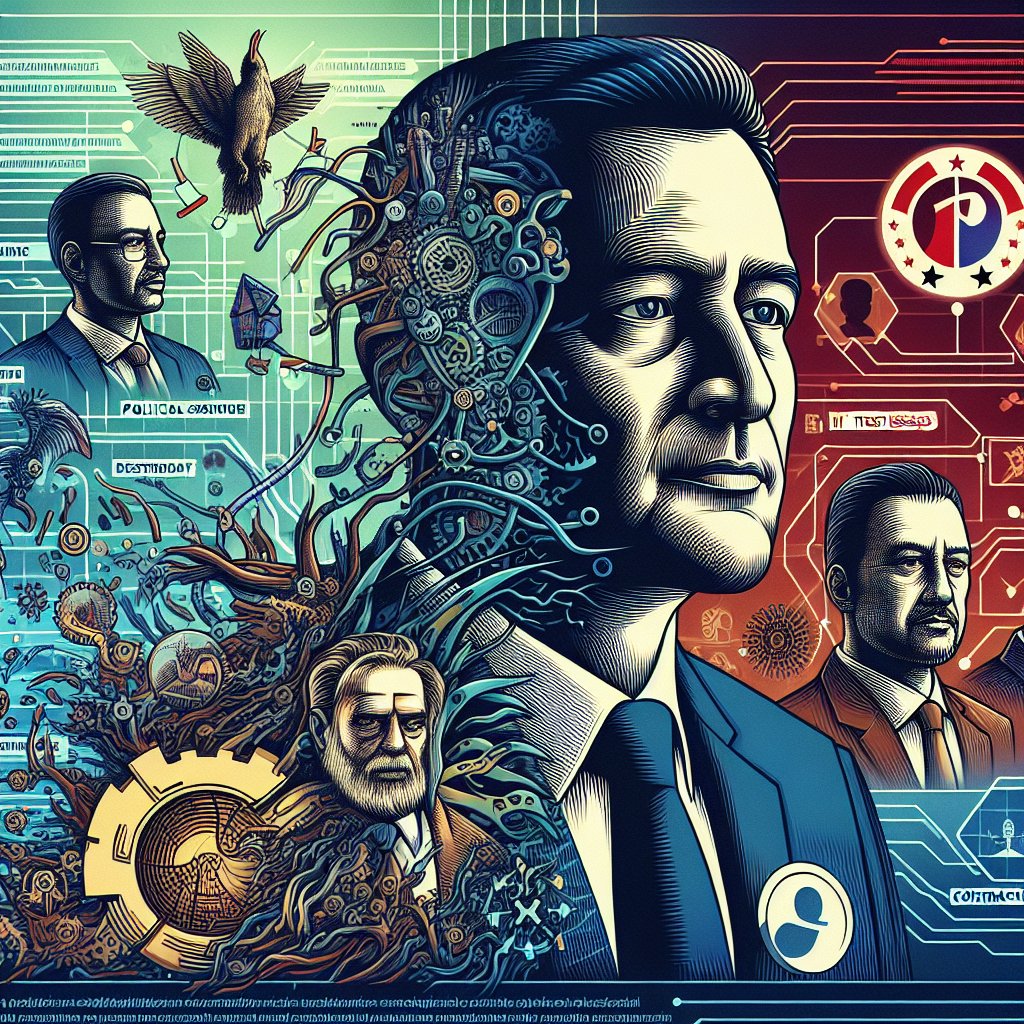Image created by AI
MK Party's Spokesperson Nhlamulo Ndhlela and Jacob Zuma Embroiled in Controversies
The MK party, despite not being one of South Africa's leading political forces, has found itself in the spotlight for the wrong reasons. The controversial statements made by figurehead Jacob Zuma and the involvement of the party's spokesperson, Nhlamulo Ndhlela, in a voided SARS contract have sparked widespread debate and concern.
Jacob Zuma, a notable campaigner for the uMkhonto Wesizwe (MK) party, has once again made headlines with his polarizing opinions on teenage pregnancies and same-sex marriage. His stance has the potential to impact public perception of the MK party, already scrutinized due to allegations of misconduct by its own spokesperson, Ndhlela.
Ndhlela, in an oversight that placed him in an unfavorable light, once ran a company that bagged a hefty SARS contract, which was later rescinded. The amaBhungane Centre for Investigative Journalism first revealed this in 2016, emphasizing that the contract was worth R2.2-billion, with Ndhlela’s company standing to gain around R220-million. When the connections with former SARS commissioner Tom Moyane, Ndhlela's uncle, were brought to light, it raised eyebrows across the nation.
Ndhlela's defense rests on the technicality that his bids for the contract did not explicitly break any rules, as he followed the specified process and made Moyane's familial link clear on his CV. Nevertheless, the subsequent voiding of the contract and the Nugent Commission's findings regarding Moyane's role in weakening SARS align with a broader narrative of systemic malpractice in South African institutions.
In contrast to Ndhlela, Zuma's comments have stirred emotional reactions with his zeal for cultural conservatism resonating with traditionalists but clashing with modern, inclusive values. His remarks regarding teenage pregnancies, labeling them a "disease," and views on same-sex marriage, describing it as a "disgrace," reflect his personal conservative view rather than official MK party policy according to Ndhlela. Zuma’s checkered history with women and his role as a father also complicates his moralistic stance. Zuma's personal life is marked by a series of affairs and consequential legal troubles, which add a layer of irony to his public pronouncements on social behavior.
With the MK party stating that Zuma's sentiments do not translate into policy, there's a clear disparity between his public statements and the party's stance. This juxtaposition reveals a fragmentation within the MK’s leadership in terms of unified messaging and core values, potentially sowing confusion among supporters and onlookers alike.
The broader significance lies in the challenges that MK faces, especially as Zuma's personal brand overshadows the party's identity. Given Zuma's history as a former president and his ongoing influence, his controversial remarks and the actions of MK party members like Ndhlela are intensively scrutinized. This scrutiny feeds into opponents' claims that the MK party is merely a vehicle for Zuma's aims, fuelled by his ambition and grievances rather than genuine policy shifts.
Addressing these controversies head-on, aligning spoken word with formal policies, and moving beyond the shadow of individual legacies will be critical for the MK party as they aim to establish credibility and significant support within the South African political landscape. The MK party's future success will likely hinge on its ability to navigate the turbulence of its association with controversial figures and to communicate a coherent and progressive vision to the South African populace.










